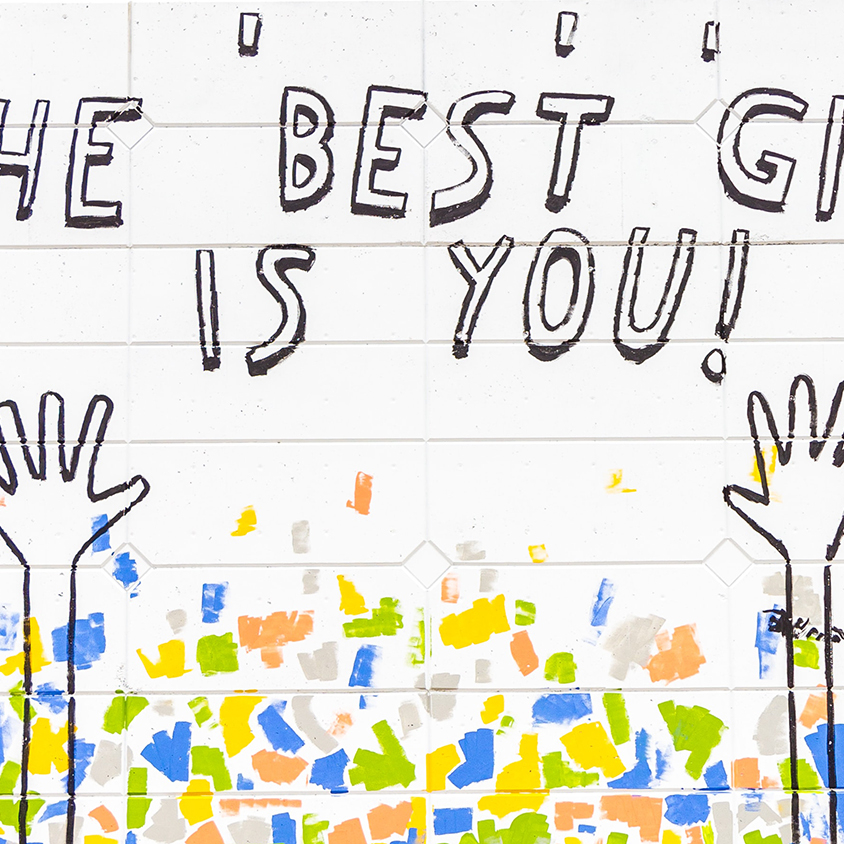The holidays bring so many expectations, some of joy and togetherness and others that reflect so much stress, so much family drama—just, so MUCH! It’s easy to feel overwhelmed this time of year. Let’s take a deep breath and think a bit differently about how to make the holidays an opportunity for learning, personal growth, and developing our personal leadership capacity.
Think about the practices that are already inherent in the holidays. For Thanksgiving, we practice gratitude. For Christmas and Hanukah, we practice generosity. For New Years, we practice reflection. Consider the upcoming holidays as an opportunity for an experiment for yourself, a chance to try new behaviors and ways of being. Then reflect afterward to see what the impact was and if you are happy with the outcomes. If so, think about how to incorporate these new behaviors into your everyday life. Model the behaviors you want to see in others. Be the change you want to see. I will undoubtedly be tapping into these practices over my upcoming holidays with family and friends, as I have some challenging situations that will provide opportunities.
Gratitude
Much has been written about the value of practicing gratitude, but we tend to intellectualize the practice rather than, well, just practicing it. Current neuroscience research shows that our brains tend to lay down behavioral tracks that deepen over time. If we always respond negatively to the world, our negative brain tracks deepen, and they become our automatic response to our world. Practicing gratitude and meditation can help rewire these tracks so that we can pause and make a different, more deliberate choice of how we respond to our world. Consistent practice leads to a new “go-to” behavioral response. Let’s look at a holiday practice example. You may anticipate that a family member will be difficult at a gathering. Instead of going on the defense or anticipating matching their behavior, consider pausing and identifying something for which you are grateful. It could be about the person, the group, the evening, the food, the music, or any other element that presents an opportunity for you to feel thankful. Once you do this, your brain automatically begins to view the situation differently. It can help to redirect a reactive response and support a different choice of behaviors. It’s not important if you share your gratitude thoughts with others or keep them to yourself. Either way, you will begin to reinforce your positive brain tracks. If done authentically, your gratitude sharing can serve to change the feelings in the room. This practice might just help you to enjoy the event. Reflect on how you feel after practicing gratitude. If you like the feeling, find a way to incorporate it into your everyday life on your personal leadership journey.
Gratitude is not only the greatest of virtues but the parent of all others.”— Cicero
Generosity
Have you heard that people feel more fulfilled when they practice generosity? Let’s try this practice experiment over the holidays. Generosity doesn’t have to mean spending money. It can be simple everyday acts of kindness that you are conscious of, such as holding the door for someone, carrying bags, not spreading gossip, or complimenting someone. How can we practice generosity during the holidays in a way that can help others and help ourselves at the same time? For example, can we just be present and listen to someone without interrupting? Can we practice empathy for a friend’s difficulties without trying to provide advice? Can we offer to read an inspirational poem before the holiday dinner? Think about what generosity means to you and others. After you consciously practice this during the holidays, reflect on how you feel. Did it change your experience? Others’ experience? This reflection and its insights can become a part of your personal leadership journey.
“It is the heart that does the giving; the fingers only let go.” —Nigerian proverb
Reflection
This is an underutilized practice that has significant rewards for us. The typical New Year’s Eve resolution proposes that we look back on the past year and make promises and commitments for the new year. We all know the success rate for these resolutions. Not great. However, reflection can help us better understand ourselves and our experiences so that we choose our next actions consciously and deliberately. We can’t only look back or just look forward. We need to pause and stay in the present long enough to better understand ourselves to obtain meaningful insights for our lives. Our world is a whirlwind of continuous re-activity, and we rarely pause to reflect and consider what events and experiences mean to us.
As we transition from this year to the next, we can reflect on what is working in our lives and where we are stuck. What do we want to hang onto, and what we need to let go. What will support the changes we want in our lives over the next year? What kinds of growth do we want for ourselves? And why? The why is important and worth its own reflection. If we aren’t clear on the why of our change, we likely won’t achieve it. Consistent reflection provides the pause in our lives to think, and then to make more conscious decisions for the future. How about we start to practice reflection in our everyday lives? Start small with a 10-minute daily reflection at the end of your day. Journaling can help as the process of writing causes us to be in the moment.
“Self-reflection is a humbling process. It’s essential to find out why you think, say, and do certain things – then better yourself.” Sonya Teclai
Try some of the deliberate practices as an experiment this holiday season: gratitude, generosity, and reflection. It might be the best gift you ever gave to yourself.

